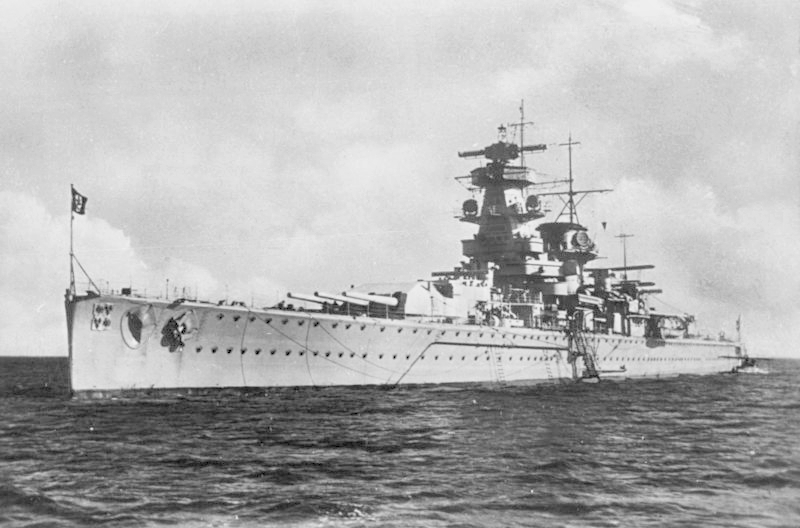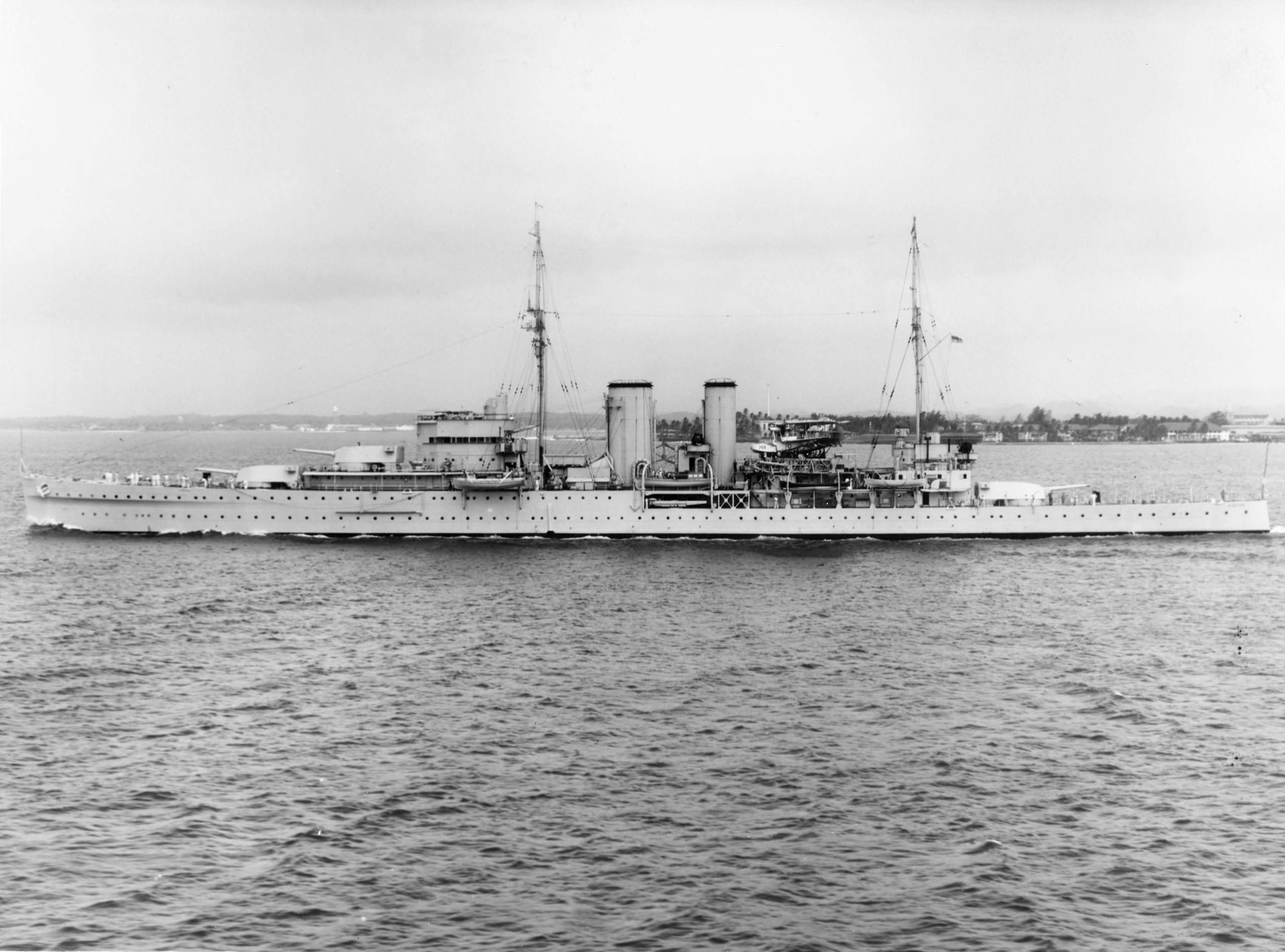On Ontario farmland safely inland from Second World War bombing, a town sprang up to house 9,000 people working at a munitions factory that produced 40 million shells for the Allied war effort.
The town was named Ajax, after a ship in a little-remembered sea battle off the coast of Uruguay in 1939, the first Allied sea victory of the war.
Great War armistice terms forbade Germany from building classic warships, so instead it produced heavily armed cruisers the British called pocket battleships.
One, the Admiral Graf Spee, attacked merchant shipping in the South Atlantic, but the Royal Navy’s South American Naval Division had trouble finding it.

Admiral Graf Spee in 1936. [Wikimedia]
On Dec. 13, 1939, Spee spotted the British ships and Captain Hans Langsdorff attacked, taking on the largest ship first. Although Spee had a firepower advantage, the British ships were faster and separated to draw out Spee’s fire. The two smaller ships closed in, before Spee could finish off Exeter.
Although severely damaged and forced to withdraw, the last of Exeter’s shells crippled Spee’s fuel system. Unable to repair the damage and lacking enough fuel to return home, Spee limped into Montevideo.
The ship had to leave the neutral port by Dec. 17 or be interned for the duration. Langsdorff was ordered not to let that happen, nor to let the ship fall into enemy hands.

Exeter underway off the coast of Coco Solo, Panama, in 1939. [Wikimedia]
The streets of Ajax, Ont., are named after crew of the three British ships in what is known as the Battle of the River Plate. But one was named after Langsdorff, who committed suicide rather than be captured.
Ajax now has a population of about 120,000. The hulk of Spee lies less than 10 metres underwater off the coast of Uruguay.
Advertisement






















